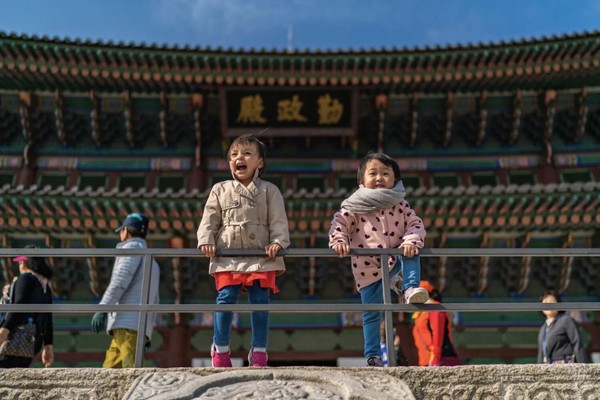Last month, the Cultural Heritage Administration (CHA) came under fire for a discriminatory special discount policy on Children’s Day. The original announcement said that up to two accompanying guardians of children would receive free admission to seven royal tombs and palaces on May 5, but children above the age of 12 and foreign children are excluded from the promotion. The announcement stirred public outrage and was quickly taken down and revised to include everyone, regardless of age or nationality. The CHA based the revised policy on the hopes of providing the general public with more opportunities to enjoy cultural heritage. Before the backlash, foreign children were excluded because the CHA believed that they did not have the same level of cultural ties as Korean children. “The Cultural Heritage Administration is of the position [that] Children’s Day is a day for Korean children,” a deputy director at the CHA infamously said.

Many stories and criticisms about the discrimination and exclusion of adult expats in Korea have been brought up, but less attention is given to expat children who face the same issues — despite the fact that children usually have it worse. While most adult foreign residents already have an established cultural identity and are more mentally capable of dealing with discrimination, foreign children have to handle the same, if not worse, level of problems during their formative years. In an interview with The Korea Herald, several foreign children recounted their lack of a sense of belonging with their Korean peers, despite spending a majority of their lives in Korea and being able to speak Korean fluently. “Even though I consider myself Korean and I’m good at Korean, [kids] just don’t play with me,” one student recalled. At this stage of life, the friends and environment where children grow up directly affect the formation of their identity, self-esteem, and values. Rejection from society may cause serious repercussions throughout their entire lives, such as social anxiety, trauma, and depression.
To make matters worse, discrimination often perpetuates racism on top of these problems. Although most foreign children are subject to discrimination, some might have a better or worse experience depending on their race and color of their skin. The Korean public tends to regard Caucasian-looking children more highly, while South and Southeast Asian children are looked down upon. This perception results in microaggressions that further destroys children’s self-image and cultural identity.
Another serious issue that foreign children have to face is bullying. While bullying is a major issue for all children, foreign children are much more likely to become bullying targets, with the law seldom on their side. Last year, a 13-year-old Mongolian girl was beaten and tortured for six hours by four senior students. The perpetrators tied up, punched, and wrote racial slurs on the girl, and later also forcefully poured alcohol in her mouth. Her ordeal was videotaped and the footage was sold among fellow students for 5,000 KRW. The assailants’ identities are still concealed, and two of them cannot be prosecuted under the regular court because of a law protecting minors aged 14 or younger. The incident sparked many protests demanding harsh punishments on perpetrators of school bullying and shed some light on the horrors that expat children go through.
While adult expats have a home to return to and cultures to miss, expat children are not blessed with the same luxury. Korea, being a highly homogenous country, still fails to fully embrace those who are “different”, while the children’s so-called “home” is nothing but a faraway place with customs, ideologies, and people that are foreign to them. It is time to start calling for fairer treatment of foreign children, both legally and socially. If they speak the same language, attend the same schools, and tread on the same grounds as Korean children, are their looks and passports the only reasons that make them “not Korean enough”?

